7 settlements with unique landscapes
Categories: World
By Pictolic https://pictolic.com/article/7-settlements-with-unique-landscapes.htmlAll settlements are unique in their own way, but there are settlements that cannot be confused with any other place on our planet. Such towns and villages do not need attractions — they themselves serve as an excellent lure for tourists due to the characteristic features of the location or terrain. The inhabitants of unusual settlements and cities serve as a clear example of the fact that people are the most perfect form of life on Earth, as they can adapt to life in almost any conditions.
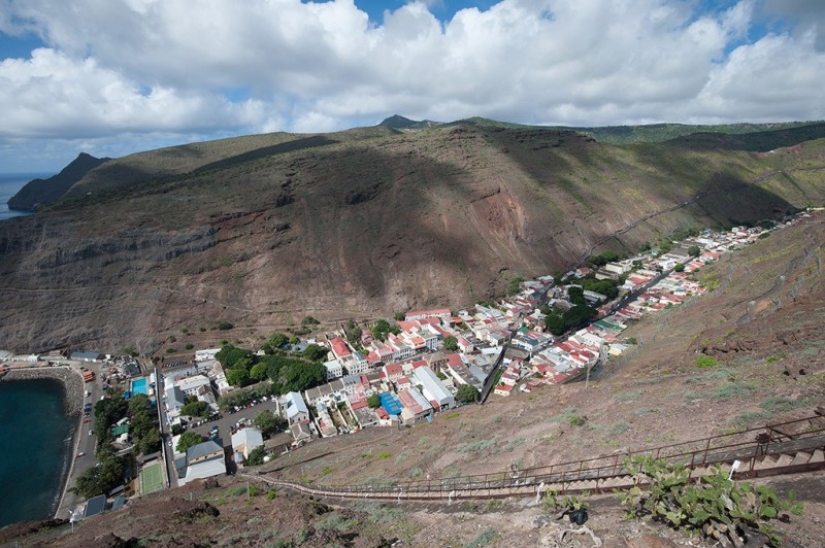
The "World" of the diamond capital of Russia
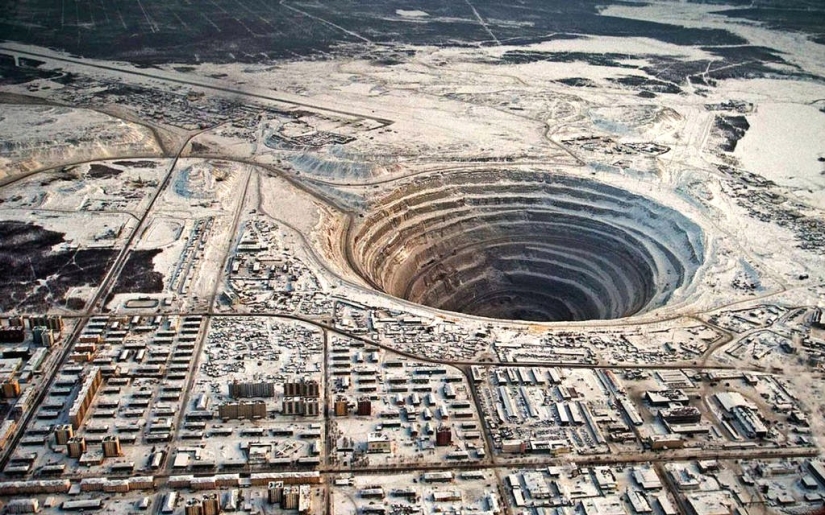
A giant "hole" located near the city of Mirny (Yakutia), at first glance looks like a meteorite crater, but in reality this "World" is one of the world's largest diamond quarries.
Diamond deposits in this part of Yakutia were discovered in 1955, after which the village of Mirny was founded, diamond mining began two years later, and a couple of years later the village received the status of a city. Mining of diamond-bearing ore by the open-pit method lasted for more than forty years, in 2001 the quarry was abandoned, and now diamonds are mined only at an underground mine.
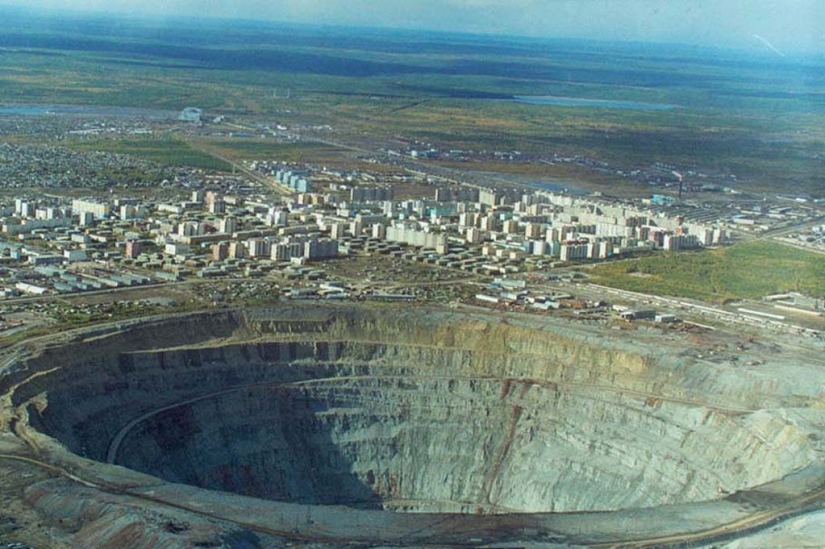
The size of the quarry is impressive - the depth reaches 525 m, and the diameter is 1.2 km, it can even be seen from space. According to some reports, helicopters are forbidden to fly over the "World", as a huge funnel literally sucks in rotorcraft.
Europe on the edge of the abyss
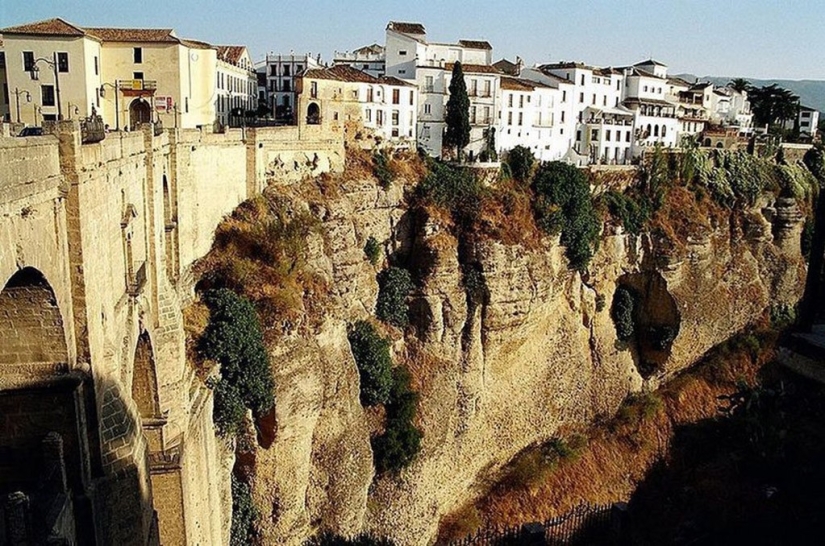
You may have heard about the ancient settlements of Yemen, built over the steep slopes of the rocks. The Spanish city of Ronda is also located directly above the abyss, on two rocks connected by a bridge built about two hundred years ago. Fans of extreme tourism will surely like the Mina de Ronda - a steep staircase of 365 steps leading from the bottom of the gorge to the foot of the Casa del Rey Moro Palace.
In addition to its unique location, the city is also known for the traditions of bullfighting - apparently, the citizens lack the thrill of living on the edge of the abyss.
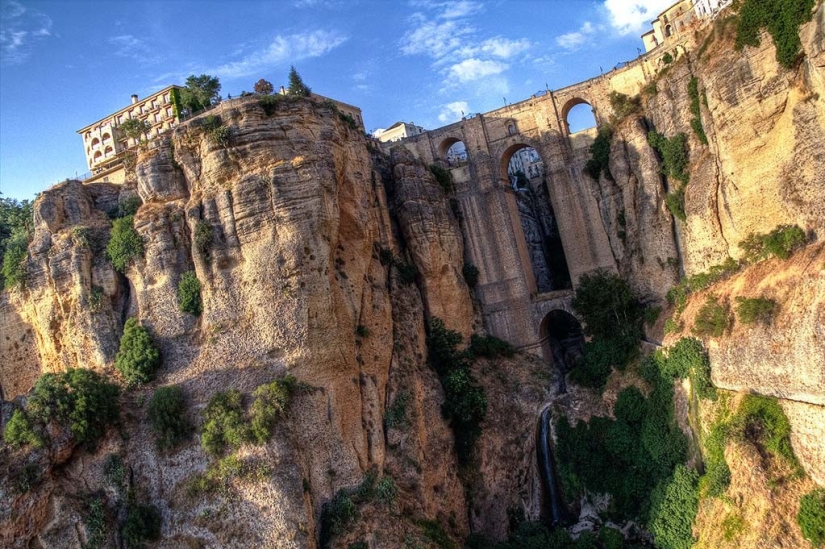
It is worth noting that Ronda is not the only European settlement whose inhabitants can be considered climbers by default. On a rock near the coast of the Tyrrhenian Sea, the Italian commune of Tropea "climbed", to the foundation of which, according to legend, the legendary Hercules was involved. Ronda and Tropea are among the most popular tourist destinations in Europe, but when visiting them, you need to take some precautions — the abyss is much closer to the buildings than it seems from the photos.
40,000 pilgrims in the desert
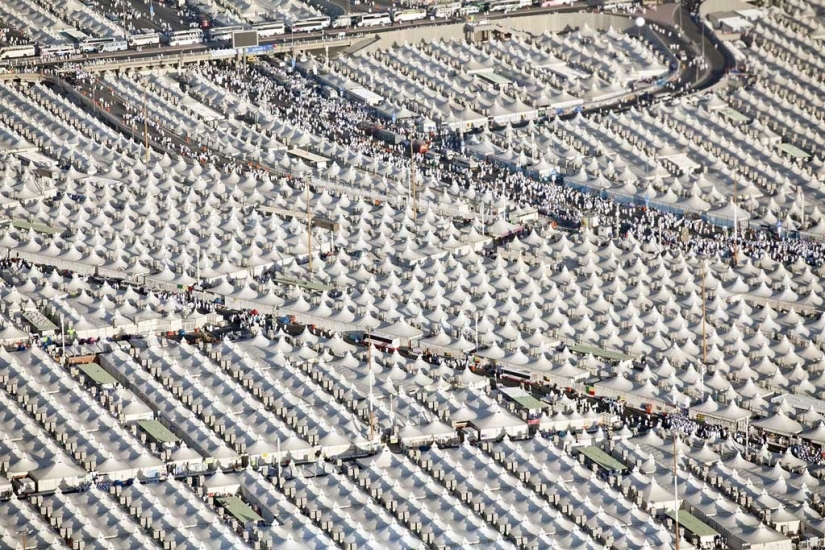
The tent city in the Mina Valley cannot be called a city in the full sense of the word, although it surpasses many settlements in size. Probably, this is possible only in Saudi Arabia — a city of 40 thousand tents has appeared here, where about 3 million Muslims come every year for five days to perform the Hajj - the main sacred pilgrimage of Islam associated with visiting Mecca. Once in a lifetime, it must be carried out by every Muslim.
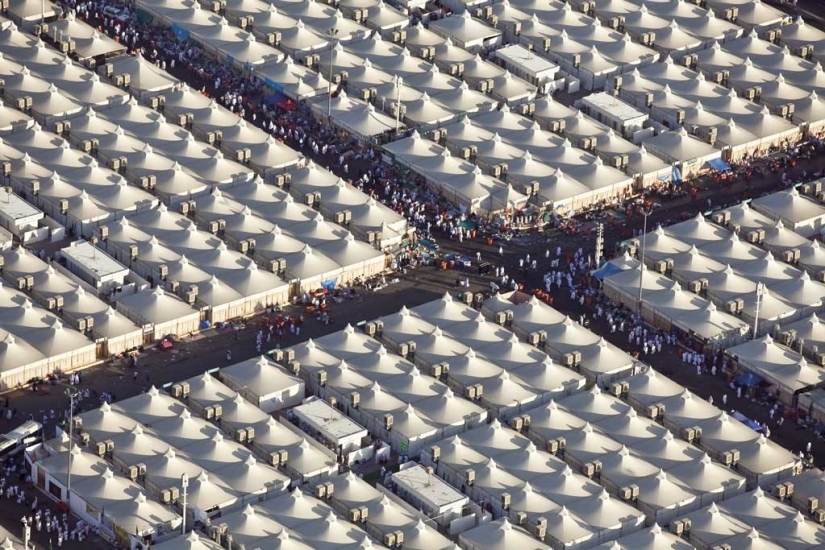
Not every pilgrim has relatives living in Mecca, and not everyone has enough room in hotels, so some of the enterprising residents of Saudi Arabia came up with the idea to rent tents in the Mina Valley. Then other businessmen joined him, as a result of which a real tent metropolis gradually grew here. Oddly enough, the Mina tent settlement is considered one of the most innovative settlements on the planet — with the assistance of the Arabian authorities, ordinary tents were replaced with new ones made of refractory materials and resistant to wind, water and electricity were installed in each of them. Despite all the efforts of the government, living conditions in the valley still leave much to be desired — pilgrims share "living space" with dozens of co-religionists, during the Hajj the population density here reaches 5-7 people per 1 m2.
The Emperor's last refuge
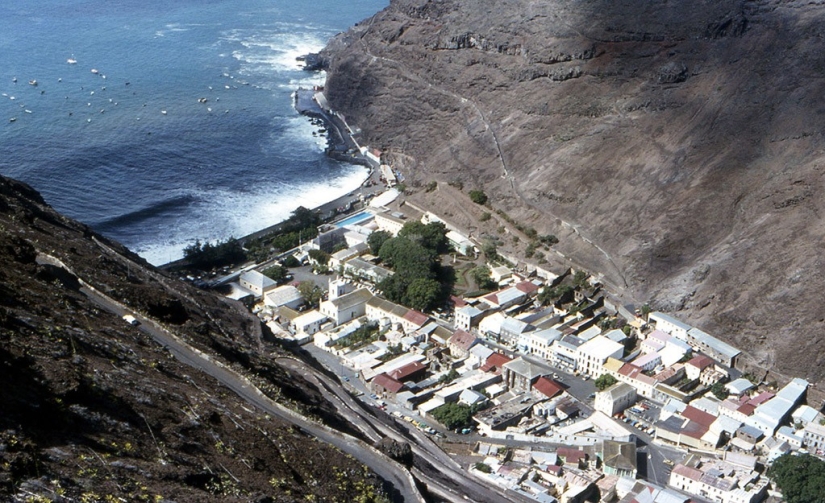
Residents of the city of Jamastun, on the island of St. Helena, can enjoy all the benefits of civilization, except for mobile phones, credit cards and transport accessibility. Jamestown is located at the very bottom of a mountain gorge, so there is practically no cellular connection, as well as the Internet, and you can get here only by the British mail ship "St. Helena", which calls on the island once a month, the journey from Cape Town takes about five days.
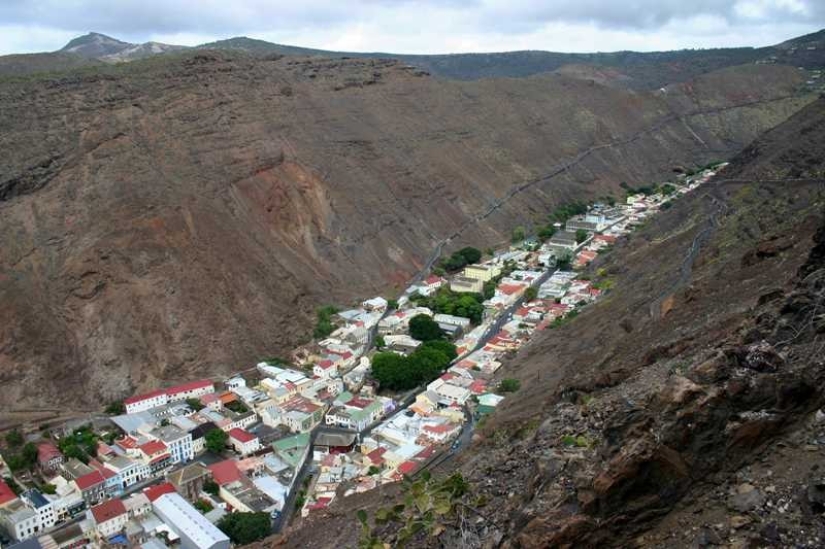
This piece of land was discovered by the Portuguese traveler Juan da Nova in 1502, for some time the Netherlands claimed ownership of it, but the island was not of strategic importance, so soon it was forgotten for a while. A century and a half later, Great Britain seized control of the island, and now it is considered part of the British overseas possessions.
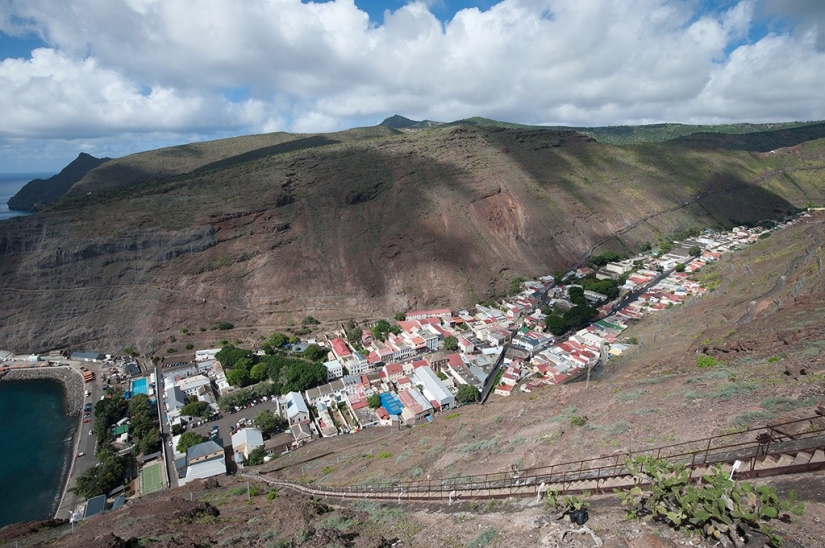
The main attraction of the city is the Jacob's Ladder on one of the slopes of the surrounding hills. The staircase consists of 699 steps, in the old days farmers used it to deliver food to the city. The Island of Saint Helena itself is known for the fact that Napoleon Bonaparte was imprisoned there. The former emperor of France left the following comment about the place of exile: "There is nothing here but time."
Dutch houseboats
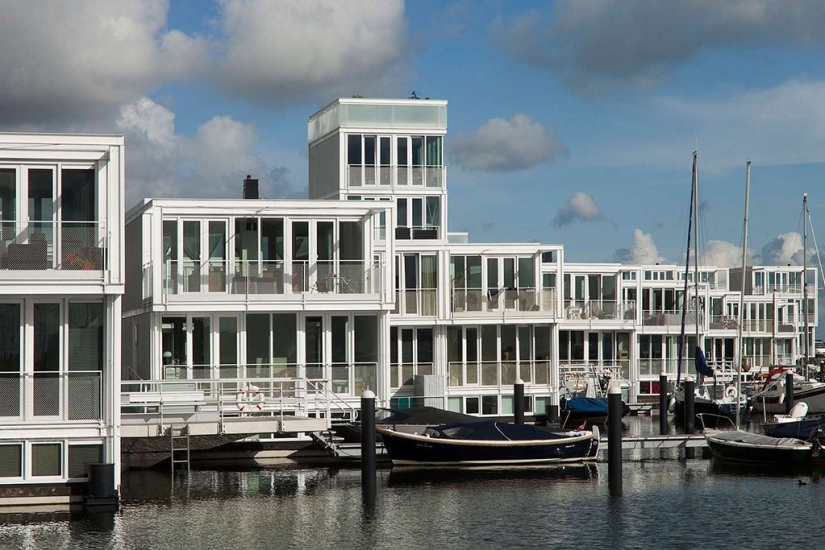
The settlement of Aijeyburg, located near the Dutch capital, is located below sea level, but it is not in danger of flooding — the area is already a reservoir, and each building on it is a kind of vessel. The Dutch create houses on the water due to the lack of land suitable for construction, floating buildings are built in Dutch shipyards, then towed to permanent locations and moored to special berths. The houses are built on a floating foundation of foam concrete, they are completely sealed, so the Aijeiburg perfectly withstands the rise in water level.
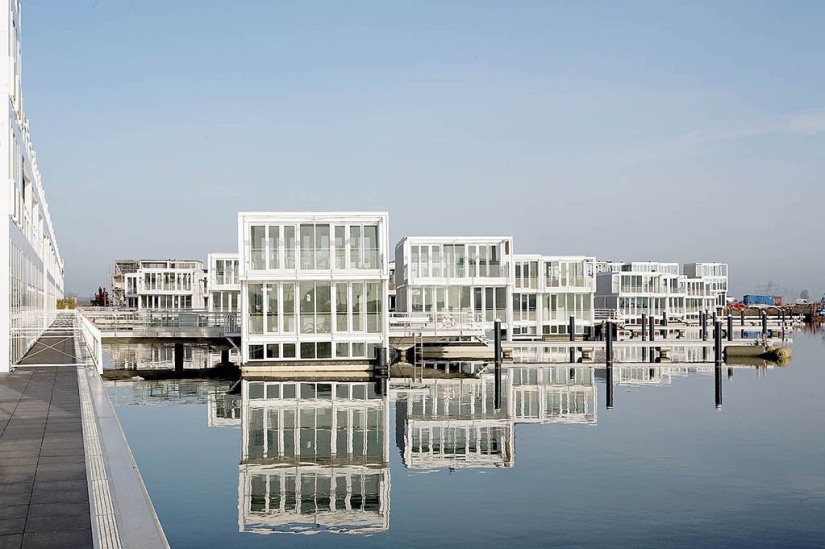
Building settlements on water is a long Dutch tradition, it is enough to mention Northern Venice, the famous village of Githorn with almost 800 years of history. The streets of Githorn are canals dug in the XIV century for the transportation of peat. Until recently, there were no land roads in Northern Venice, now a system of bridges and bike paths has been built there, but many locals and tourists still prefer to travel along the Githorn by flat-bottomed boats.
"Star" Fort Burtanye
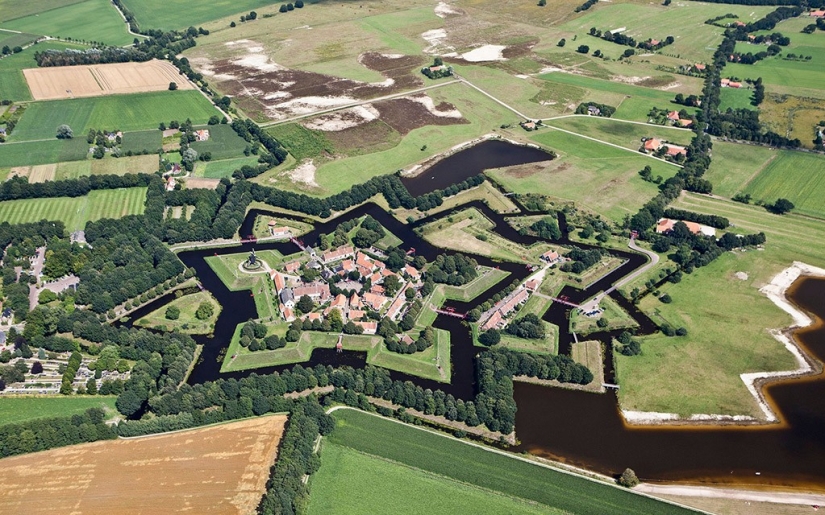
An unusual settlement in the shape of a star is a huge open-air museum that arose on the site of the ancient fort Burtagne, erected in the XVI century by order of Prince William I of Orange to protect the strategically important road from the city of Groningen to Germany. For about three centuries, the fortification successfully performed its defensive functions, but by the middle of the XIX century, the need for such structures disappeared and in 1851 it was decided to demolish most of the buildings. The once impregnable fortress turned into an ordinary village and remained there until the 1960s, when the local authorities decided to restore the fort as it was in the 1740s.
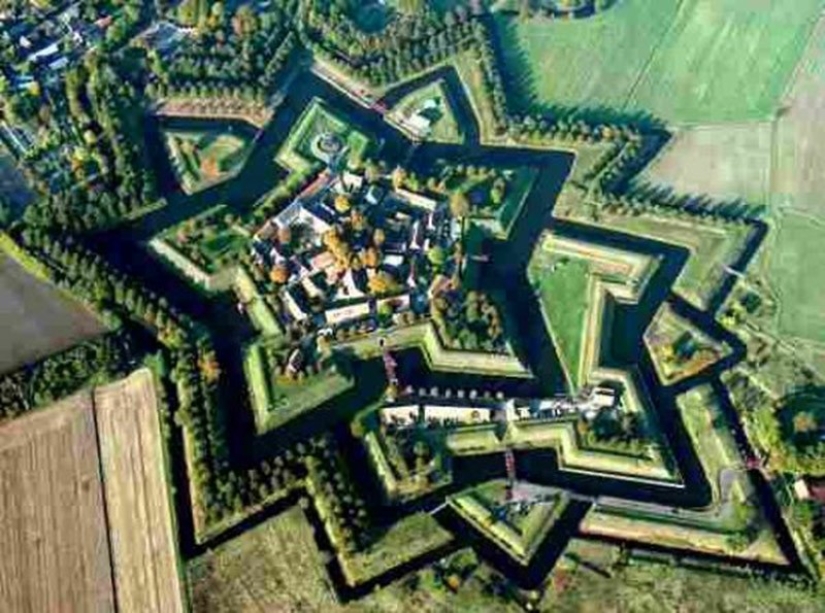
Currently, the fort is considered one of the main attractions of the province of Groningen, the reenactors perfectly managed to convey the atmosphere of the fortified Dutch settlements of the middle of the XVIII century. Walking around the fort, it is easy to imagine that he has traveled through time, perhaps the only historical "inaccuracy" of the restored Burtanje — its modern inhabitants do not relieve themselves right on the streets, as was customary in the time of William I.
The Last Free City in America
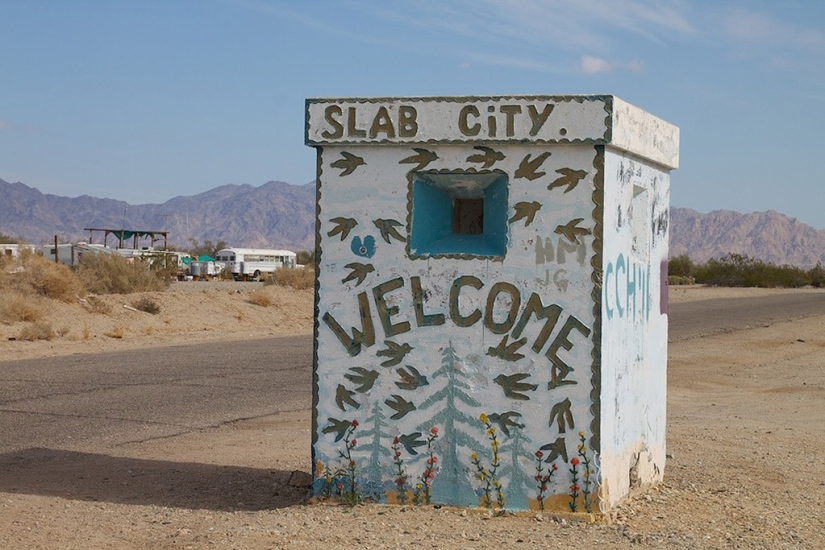
The settlement of Slab City appeared in the Colorado desert about half a century ago, since then those who are called "tumbleweeds" have been coming here from all over the country - former hippies who have not adapted to life in megacities, freelance artists without a fixed place of residence, criminals hiding from the police and other marginal elements of American society.

During the Second World War, there was a military base on the site of Slab City, but it was moved a few miles to the north, and in the 1960s travelers began to use the remaining concrete platforms as a free parking lot. Some of them stayed for a long time, as a result, a fairly lively settlement gradually grew up in the desert, numbering about 5 thousand inhabitants at the time of its heyday.
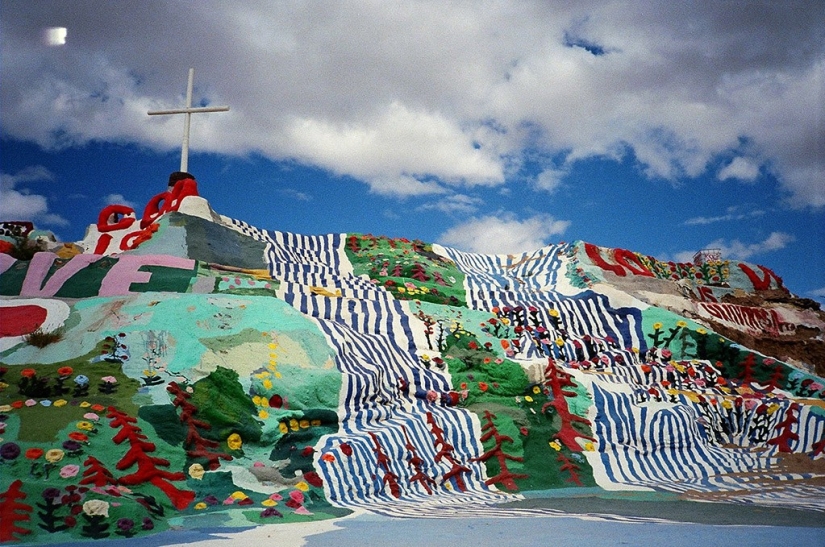
Slab City has its own library, church and even a golf course, but there is no permanent electricity and running water. About 200 people live in this kind of "city" all the time, but at the height of the tourist season, up to several thousand fans gather here to relax as "savages".
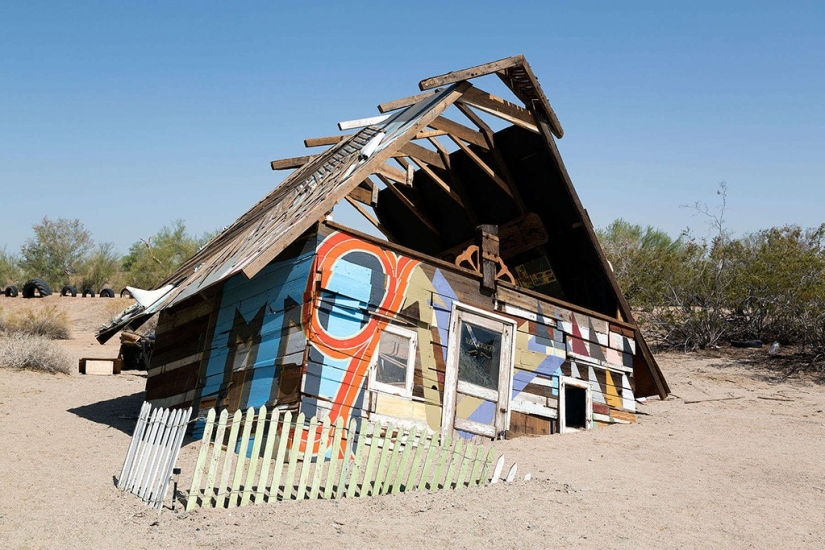
Residents of Slab City call it "the last free city on Earth", and less romantic inhabitants of the surrounding settlements use the "island of freedom" as a giant dump for old mobile homes, cars and other bulky junk.
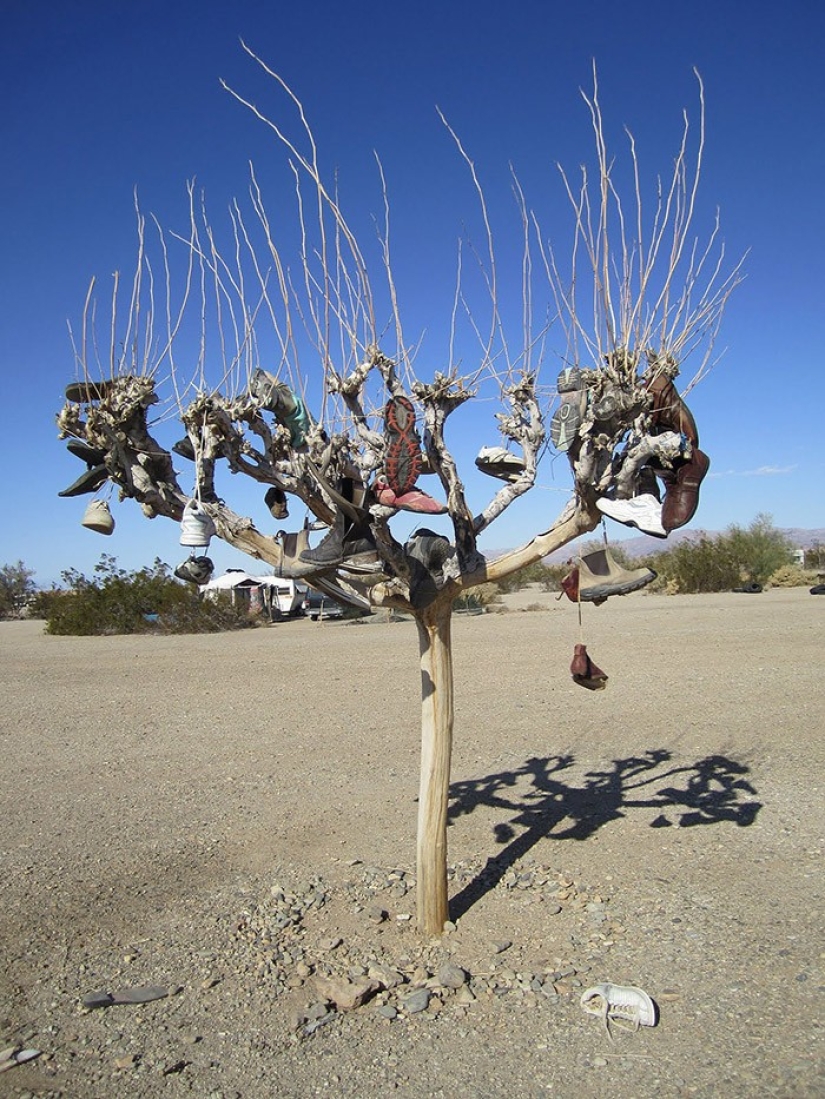
Keywords: Landscape | Locality | Settlement
Post News ArticleRecent articles

It's high time to admit that this whole hipster idea has gone too far. The concept has become so popular that even restaurants have ...

There is a perception that people only use 10% of their brain potential. But the heroes of our review, apparently, found a way to ...
Related articles

If you like peace and privacy, it is unlikely that you will choose a metropolis, going on vacation. Especially when in the world ...

How many amazing places holds our planet! The island of Lanzarote, part of the Canary Islands — one of those places. ...

The life of people on other planets no longer seems like a perfect fantasy, as a few decades ago. Space exploration is being ...

New Year's is a time to surprise and delight loved ones not only with gifts but also with a unique presentation of the holiday ...